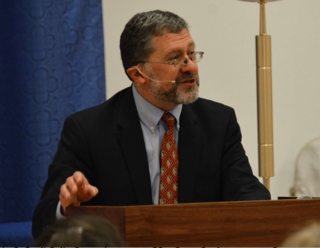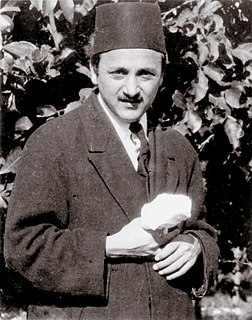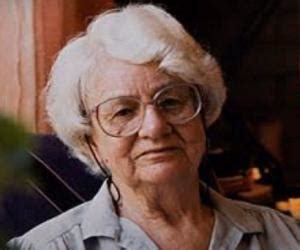A Quote by Mike Aquilina
Humility is an elusive virtue. The more we pursue it - and the more we seem to acquire it - the more we take pride in our accomplishment, and we find ourselves back at square one.
Related Quotes
Many ... begin to make converts from motives of charity, but continue to do so from motives of pride. ... Charity is contented with exhortation and example, but pride is not to be so easily satisfied. ... Whenever we find ourselves more inclined to persecute than persuade, we may then be certain that our zeal has more of pride in it than of charity.
There is one vice of which no man in the world is free; which every one in the world loathes when he sees it in someone else; and of which hardly any people, except Christians, ever imagine that they are guilty themselves. […] There is no fault which makes a man more unpopular, and no fault which we are more unconscious of in ourselves.[…]The vice I am talking of is Pride or Self-Conceit: and the virtue opposite to it, in Christian morals, is called Humility.
Let us watch against pride in every shape - pride of intellect, pride of wealth, pride of our own goodness. Nothing is so likely to keep a person out of heaven, and prevent them from seeing Christ, as pride. So long as we think we are something we shall never be saved. Let us pray for and cultivate humility; let us seek to know ourselves correctly, and to find out our place in the sight of a holy God.
I can remember the time when, if we wanted a house or housing, we relied on private enterprise. In fact, Americans built more square feet of housing per person than any other country on the face of the earth. Despite that remarkable accomplishment, more and more people are coming to believe that the only way we can have adequate housing is to use government to take the earnings from some and give these earnings, in the form of housing, to others.
Pride is a terrible and dangerous thing. It can take so many forms; it can even assume the appearance of humility. Pride can lead not only to self-exaltation, but also to self-abasement. The key to battling pride is not found in struggling against thinking too highly of ourselves or in striving to think of ourselves as lowly. The key is found in simply not thinking about ourselves at all, but setting our minds on Christ and the needs of others.
Pride is the switch that turns off priesthood power. Humility is a switch that turns it on . . . . Some suppose that humility is about beating ourselves up. Humility does not mean convincing ourselves that we are worthless, meaningless, or of little value. Nor does it mean denying or withholding the talents God has given us. We don't discover humility by thinking less of ourselves; we discover humility by thinking less about ourselves. It comes as we go about our work with an attitude of serving God and our fellowman.
No pain that we suffer, no trial that we experience is wasted. It ministers to our education, to the development of such qualities as patience, faith, fortitude and humility. All that we suffer and all that we endure, especially when we endure it patiently, builds up our characters, purifies our hearts, expands our souls, and makes us more tender and charitable, more worthy to be called the children of God . . . and it is through sorrow and suffering, toil and tribulation, that we gain the education that we come here to acquire and which will make us more like our Father and Mother in heaven.
We exist for ourselves, perhaps, and at times we even have a glimmer of who we are, but in the end we can never be sure, and as our lives go on, we become more and more opaque to ourselves, more and more aware of our own incoherence. No one can cross the boundary into another – for the simple reason that no one can gain access to himself.


































